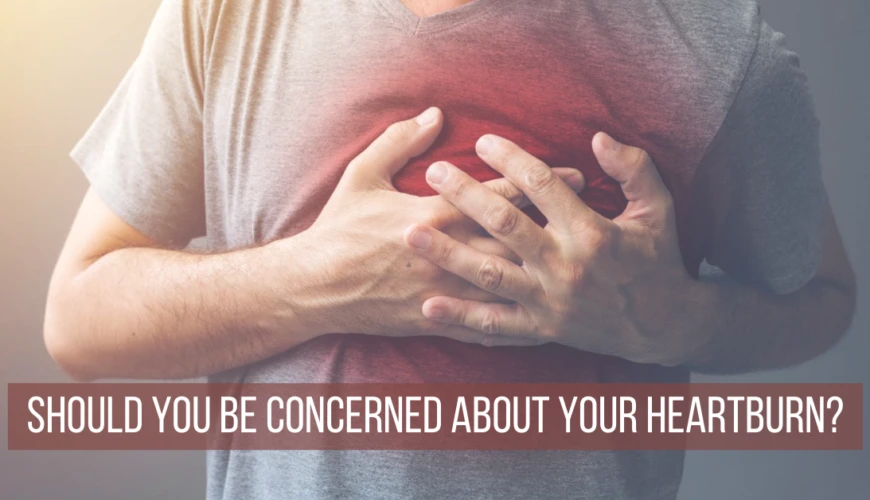Most people experience heartburn or acid reflux from time to time. This can be triggered by what you eat and drink, or when. However, if you experience heartburn or acid reflux often, it could be the sign of something bigger.
Gastroesophageal reflux disease (GERD) occurs when stomach acid frequently flows back into the esophageal tube connecting your mouth and stomach, also known as acid reflux. GERD can present as mild acid reflux that occurs at least twice a week, or moderate to severe acid reflux that occurs at least once a week. GERD affects up to 20% of the U.S. adult population, or over 41 million Americans.
GERD Signs & Symptoms
- Heartburn or acid reflux at least twice a week
- A sore or raw throat
- A hoarse voice
- A frequent sour acidic taste, usually when lying down
- Having trouble swallowing
- A dry cough
- Having bad breath
- Regurgitation of food
Am I At Risk?
The following conditions may put a person at a higher risk for GERD: obesity, hiatal hernia, pregnancy, connective tissue disorders, and delayed stomach emptying.
Lifestyle Modifications
Managing symptoms is a necessity in daily life for those living with GERD. In order to limit disruptions to daily life, you may need to modify your lifestyle. If you or a loved one are living with GERD, these lifestyle modifications may help:
- Eat meals at least 3 hours before bedtime
- Elevate your head during sleep
- Diet modifications including limiting or eliminating particular foods, especially those high in acidity
- See our latest blog for tips on which foods help and hurt GERD – Eat This Not That: Acid Reflux Edition
Complications
If left untreated, GERD could damage the esophagus. Complications include, but are not limited to:
- Erosive esophagitis: erosions or ulcers form in the esophagus. This physical damage can lead to a recurrence of pain and discomfort in the esophagus.
- Esophageal stricture: scar tissue is formed in the lower esophagus due to a buildup of stomach acid. This can narrow the food pathway, making it more difficult to swallow.
- Barrett’s esophagus: damage from the stomach acid can cause changes in the tissue lining of the lower esophagus, leading to an increased risk of esophageal cancer.
If you or a loved one are living with GERD, consider a clinical research study with Preferred Research Partners! Sign up below for further information.

